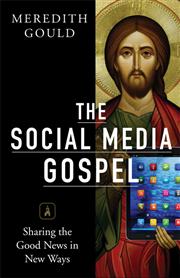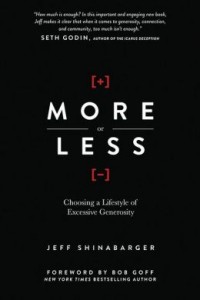In the late 90’s, we were at the front edge of a big shift.
At the University of Wisconsin, we pulled together a strange weekly mix of friends to discuss Latin American economics, community supported agriculture, U.S. materialism, and a pile of other issues. Oh yeah, and the Bible. We called it The Revolution.
As we explain in our book, we ate meals of plain rice, to save time and money to get to what really mattered. We tried to make sense of what we were learning in class. We explored the connection of Christian faith and ethics and current events, particularly globalization and poverty.
We were a small group.
A year later, we fasted during a banquet put on by our campus ministry, protesting because we thought the money could be better spent, shared with the poor or addressing suffering in the world. We still attended, and we have pictures of us having fun with friends. But no one joined really appreciated the questions we raised.
A couple months later, just before graduating, we were voted by these friends “Most Likely to Give You Their Last Dollar” within this ministry of a couple hundred students. We announced we were moving to Nicaragua, to enter into abject poverty, to figure out what Jesus meant in Luke 6:20 when he said, “Blessed are you who are poor, for yours is the kingdom of God.”
No one asked about coming with us.
We went, we learned a lot, I got very sick, and we helped some. After a year, we returned home, eager to learn more and to find out how we could be more helpful to our friends in Nicaragua and other hard places.
Fast forward nearly a decade, and we volunteered at InterVarsity’s Urbana Student Missions Conference in 2009. We stood in the dome in St. Louis, surrounded by 16,000 others, listening to biblical preaching from people like Oscar Muriu from Kenya. The theme of the conference was “He Dwelt Among us,” from the Gospel of John, and incarnational ministry in hard places—for justice—was trumpeted.
“Can you even believe this is being said, that this is happening?” I marveled to Chrissy.
As we passed through our twenties, biblical justice became part of U.S. evangelicalism, of the church in our generation. I think Shane Claiborne’s Irresistible Revolution had a lot to do with this.
We see this shift in our events.
For decades, Urbana has modeled God’s heart for justice in racial reconciliation (we were 44% non-White at Urbana 12). We have taken heat for vanguard teaching about biblical justice, even though we never stopped teaching about the need for faith in Jesus. I didn’t hear any such critique at Urbana 12 (and I was monitoring the 40,000 tweets about the conference).
We’ve also seen the Passion Conference morphed from worship to worship-and-anti-human trafficking. But the Justice Conference is the clearest example of this, and not in name only.
They are bringing together a great collection of voices about justice, like
- John Perkins of the CCDA
- Lisa Sharon Harper of Sojourners
- Leroy Barber of Mission Year
- Stephen Bauman of World Relief
- Chai Ling of All Girls Allowed
- the aforementioned Shane Claiborne
- Sheryl WuDunn of Half the Sky
- Eugene Cho of One Day’s Wages and Quest Church
- Sandra Van Opstal of Urbana and Grace and Peace Community Church
- Plus a bunch of great artists
It’s coming up in a couple weeks, Feb. 22-23, and you can attend in Philly or across the country at one of their “simulcast” sites.
But what’s the next step that God is calling us into as the North American church?
I’ve just read David Platt’s new book Follow Me: A Call to Die, A Call to Live (more on that right here, tomorrow). So how we are formed (and form one another) as disciples of Jesus is on my mind. Of course, I think we all need to continue to grow in our worship of God, in spiritual disciplines, in our understanding and action for biblical justice.
Between Platt’s book (and Platt’s message at Urbana, amongst others), I think the next frontier for us Christians in North America is exciting and terrifying.
Sacrifice.
We have much.
How much are we willing to give? (Tweet this.)
May The Revolution continue.











